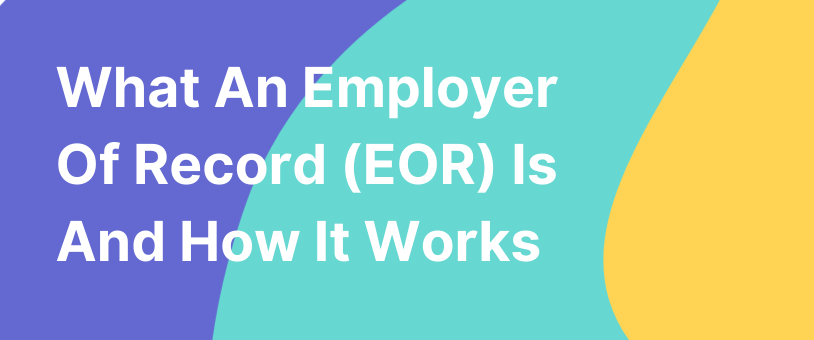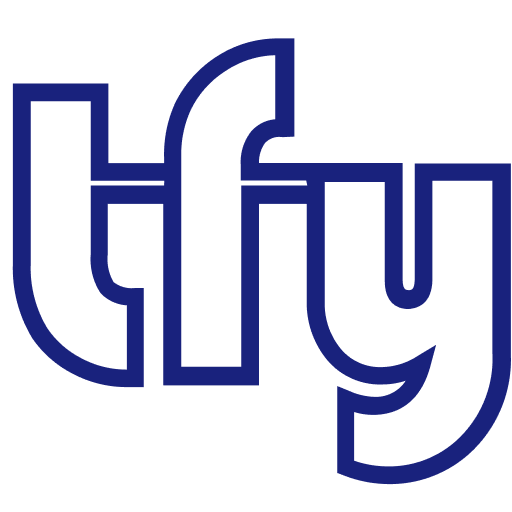With the rise of remote work, EOR services are booming. According to a study by Valuates Reports, the employer of record market will reach 6.7 Billion USD By 2028 With A CAGR Of 6.9%. Here’s everything you need to know about what an EOR is, and how they work.
What is an employer of record (EOR)?
An employer of record (EOR) is a company that acts as the legal employer for employees who are hired by a client company. The EOR assumes responsibility for the administrative and legal aspects of employing the workers, such as payroll, benefits, tax compliance, and compliance with employment laws. The EOR typically charges a fee for these services, and the client company maintains control over the workers’ day-to-day tasks and responsibilities. EORs are commonly used by companies that want to hire workers in countries where they don’t have a legal entity, or that want to outsource certain HR functions.
How does an employer of record work?
An employer of record (EOR) works by providing a range of HR services to a client company that hires workers through the EOR. The EOR acts as the legal employer for the workers and assumes responsibility for the administrative and legal aspects of employing the workers, such as payroll, benefits, tax compliance, and compliance with employment laws. The client company maintains control over the workers’ day-to-day tasks and responsibilities, and the EOR typically charges a recurring fee per employee for the services it provides.
Here is an overview of how an EOR works:
- The client company contacts the EOR and provides information about the workers they want to hire, such as their job titles, locations, and salary details.
- The EOR reviews the information and determines if they can provide the services and support the client company needs.
- If the EOR agrees to provide the services, they enter into a contract with the client company and become the legal employer for the workers.
- The EOR assumes responsibility for the administrative and legal aspects of employing the workers, such as payroll, benefits, tax compliance, and compliance with employment laws.
- The client company maintains control over the workers’ day-to-day tasks and responsibilities and provides direction and supervision as needed.
What exactly does an EOR do?
The EOR acts as the legal employer for the workers, and assumes responsibility for the administrative and legal aspects of employing the workers, such as payroll, benefits, tax compliance, and compliance with employment laws.
Here are some examples of the services and responsibilities that an EOR might provide:
Onboarding: The EOR may be responsible for providing onboarding support to new employees, such as orientation and training in regard to the relationship between the EOR and your business. As well as helping them get set up with the necessary tools and resources, and completing new employee paperwork.
Payroll: The EOR is responsible for processing the workers’ payroll, including calculating and paying wages, withholding and remitting taxes, and issuing pay stubs and tax documents.
Benefits: The EOR is responsible for providing and administering employee benefits, such as health insurance, 401(k) plans, and vacation time.
Compliance: The EOR is responsible for ensuring that the workers are compliant with all applicable employment laws and regulations, such as minimum wage, overtime, and anti-discrimination laws.
Visa and relocation support: If the workers are located in a different country from the client company, the EOR may be responsible for providing support with visa applications and relocation services.
Employee support: The EOR may also provide support to employees on issues such as tax compliance, benefits, and employment-related questions.
Do Employers of record help with hiring and recruitment?
In general, larger EOR providers typically do not help with job postings or candidate screening. It depends on the employer of record (EOR) and the services they offer. Some EORs may provide hiring and recruitment support to their clients, while others may not offer this service.
Here are some examples of how an EOR might provide hiring and recruitment support:
- Offer letter and contract generation: Some EORs may also provide support with generating offer letters and employment contracts for new hires, and may help the client company ensure that these documents are compliant with applicable employment laws and regulations.
- Job postings and advertising: Some EORs may help their clients with posting and advertising job openings, and may provide access to a database of potential candidates.
- Candidate screening and selection: Some EORs may also assist with screening and selecting candidates for job openings, and may provide tools and resources to help the client company make informed hiring decisions.
What is an employer of record’s role in firing, termination, and probation?
Firing and termination: If a client company decides to terminate an employee, the EOR may be responsible for handling the administrative and legal aspects of the termination, such as issuing a termination letter and final paycheck, and providing assistance with unemployment claims.
Probation: While an employer of record is typically not involved in the day-to-day aspects of probation periods for a new hire, they can be valuable by keeping you informed on local probation laws in the country your employee works. The duration of probation can vary by country, and your employer of record can help ensure you know exactly when your new hire’s probation period ends. An EOR can also schedule benefits packages to start after a probationary period compliant with local labor laws.
Benefits of using an EOR
There are several benefits of using an employer of record (EOR) for your business. Here are some key reasons.
Time and cost savings
Using an EOR can save your business time and money by outsourcing the administrative and legal aspects of employing workers. This can free up your time and resources to focus on other aspects of your business, and can reduce the costs associated with hiring and employing workers.
Compliance and risk management
An EOR can help ensure that your business is compliant with all applicable employment laws and regulations, and can help manage the risks associated with employing workers. This can provide peace of mind and protect your business from potential legal and financial liabilities.
Access top global talent
If your business wants to hire workers in countries where you don’t have a legal entity, an EOR can provide access to global talent and can help you navigate the complexities of employing workers in different countries. This allows you to recruit the best talent opportunities regardless of their location.
Employee support and retention
An EOR can provide support and assistance to your employees on issues such as visas, benefits, and tax compliance, which can help improve employee morale and satisfaction and can lead to higher employee retention rates.
Flexibility and scalability
An EOR can provide your business with the flexibility to hire and employ workers on a temporary or project-based basis and can help you scale up or down quickly and easily as needed.
Improved HR processes and systems
An EOR can provide access to advanced HR tools and systems, which can help automate and streamline HR processes, improve data accuracy and security, and provide a better user experience for your employees.
Expertise and support
An EOR can provide your business with access to a team of HR experts who can provide support and guidance on a range of HR-related issues, and can help you make informed decisions about hiring and employing workers.
Potential disadvantages of using an employer of record
While there are many benefits of using an employer of record (EOR), there are also some potential disadvantages to consider.
Loss of control
When you use an EOR, you are outsourcing the administrative and legal aspects of employing workers to another company. This can mean that you have less control over certain aspects of the employment relationship, such as payroll and benefits.
Potential conflicts of interest
An EOR may have other clients with conflicting interests and may need to prioritize the interests of those clients over your business. This can create potential conflict and may require careful management and communication to avoid misunderstandings and disputes.
Increased costs
While using an EOR can save your business time and money, it can also add costs in the form of fees for the EOR’s services. These costs may be higher than what it would cost to handle the administrative and legal aspects of employing workers in-house.
Limited customization
An EOR may have standard processes and systems that are not fully customizable to your business’s specific needs and preferences. This can limit your ability to tailor the employment relationship to your business’s specific requirements.
Loss of visibility and transparency
When you use an EOR, you may have less visibility into certain aspects of the employment relationship, such as payroll and benefits, which can make it difficult to track and monitor these areas. This can also reduce transparency and make it harder to identify and address potential issues or problems.
Potential loss of talent
If your business relies heavily on an EOR, you may be at risk of losing key employees if the EOR decides to terminate the employment relationship. This can create uncertainty and instability for your business, and can make it harder to retain and motivate key talent. While this is uncommon because your EOR legally employs your employees, they can terminate them if they need to for whatever reason.
Rejecting a potential candidate
An employer of record has the right to refuse to hire a candidate. This doesn’t happen often and is usually a result of legal compliance or complications with hiring a specific candidate. That being said, it is still a possibility.
When to consider partnering with an EOR
There are several situations when it may be beneficial to use an employer of record (EOR) for your business. The big one is for hiring employees in other countries.
When you want to hire workers in different countries
If your business wants to hire workers in countries where you don’t have a legal entity, using an EOR can provide access to global talent and can help you navigate the complexities of employing workers in different countries.
When you need flexible and scalable employment solutions
If your business needs to hire and employ workers on a temporary or project-based basis in a different country, or if you need to scale up or down quickly and easily, using an EOR can provide the flexibility and scalability you need.
When you want to save time and money
If your business does not have the time or resources to handle the administrative and legal aspects of employing workers in other countries, using an EOR can save you time and money by outsourcing these tasks. This can free up your time and resources to focus on other aspects of your business.
When you want to ensure compliance
If you are unsure about the employment laws and regulations that apply to hiring in another country, using an EOR can help ensure that you are compliant with all applicable laws and regulations. This can provide peace of mind and protect your business from potential legal and financial liabilities.
When you need expert HR support and guidance
If your business lacks in-house HR expertise or support, using an EOR can provide access to a team of HR experts who can provide support and guidance on a range of HR-related issues, and can help you make informed decisions about hiring and employing remote workers.
When you want to improve HR processes and systems
If your business’s HR processes and systems are outdated or inefficient, using an EOR can provide access to advanced HR tools and systems, which can help automate and streamline HR processes, improve data accuracy and security, and provide a better user experience for your employees.
Who uses EORs?
Employer of record (EOR) services are used by businesses of all sizes and industries. Here are some different use cases for EORs for different types of businesses:
Small businesses: Small businesses often have limited time and resources to handle the administrative and legal aspects of employing workers. Using an EOR can save small businesses time and money, and can provide access to global talent and advanced HR tools and systems.
Medium-sized businesses: Medium-sized businesses may have the resources to handle some HR tasks in-house, but may still benefit from using an EOR for certain tasks or for hiring workers in different countries.
Large businesses: Large businesses may have in-house HR departments and resources, but may still use EOR services for specific tasks or for hiring workers in different countries.
Startups: Startups often have limited time and resources to handle HR tasks, and may use EOR services to ensure compliance and manage the risks associated with employing workers.
Remote teams: If your business has a remote team or is planning to hire remote workers, using an EOR can provide access to global talent, and can help ensure compliance with employment laws and regulations in different countries.
EOR platforms to check out
Remote is a robust and modern platform for remote-first teams. EOR, contractor management, payroll, benefits, and more.
Oyster is an intuitive platform that allows you to hire, pay, and care for a global team in more than 180 countries. EOR, contractor management, payroll, benefits, and more.
TFY has features for applicant tracking, freelance management, payroll, and more in a single platform. The platform supports diversity hiring and Corporate Social Responsibility (CSR) initiatives.
Lano is both a B2B & B2C platform. Businesses can use it to process global payroll, hire remote talent and manage contractors, while employees and freelancers can benefit from its payslip service, invoicing app, multi-currency wallet, and more.





